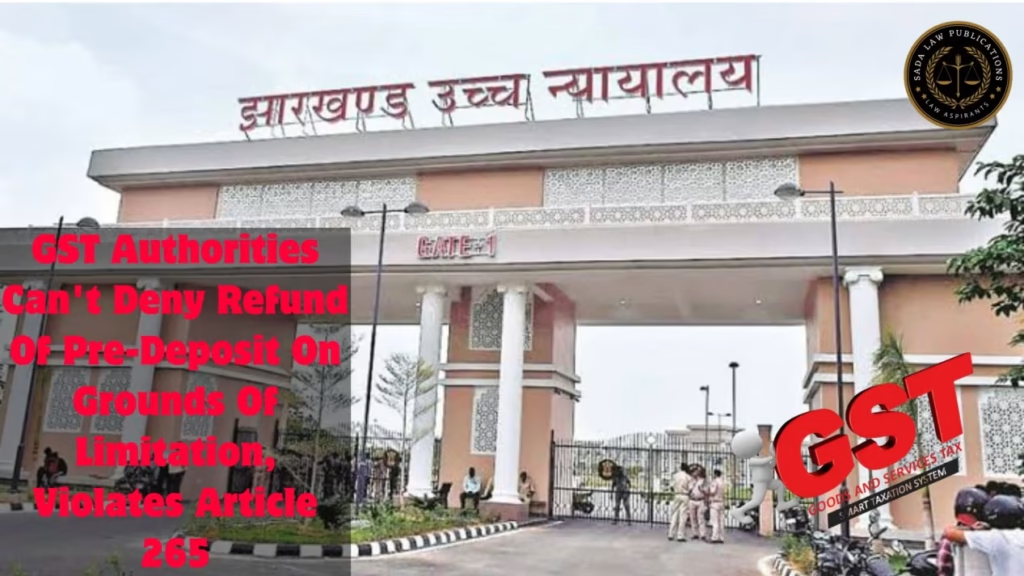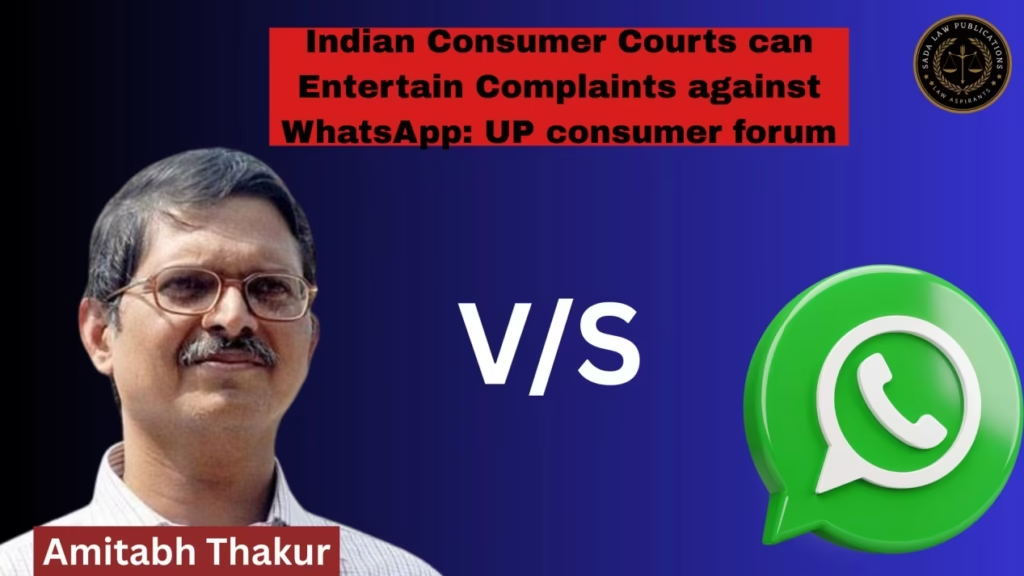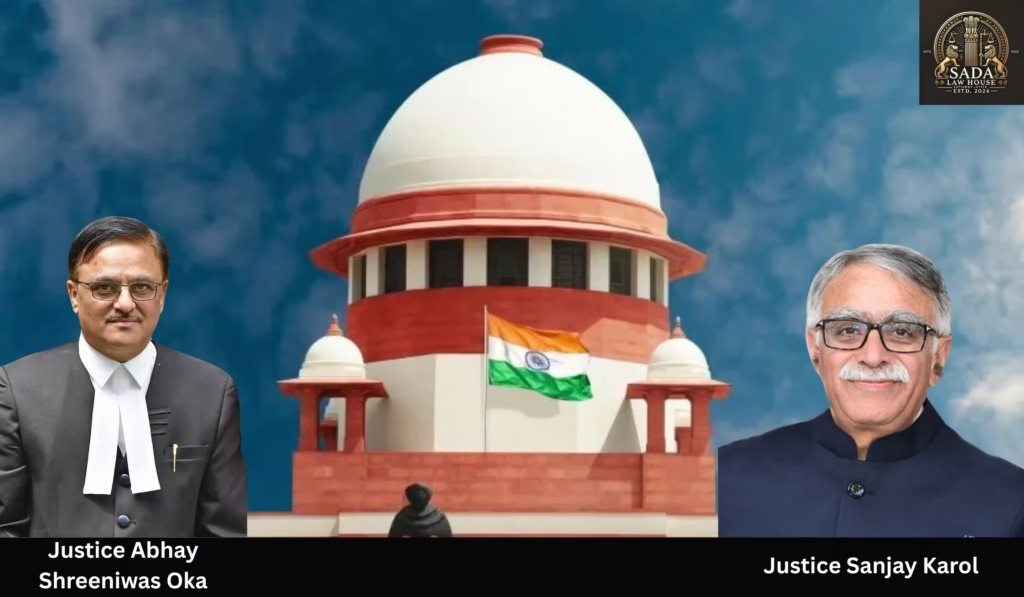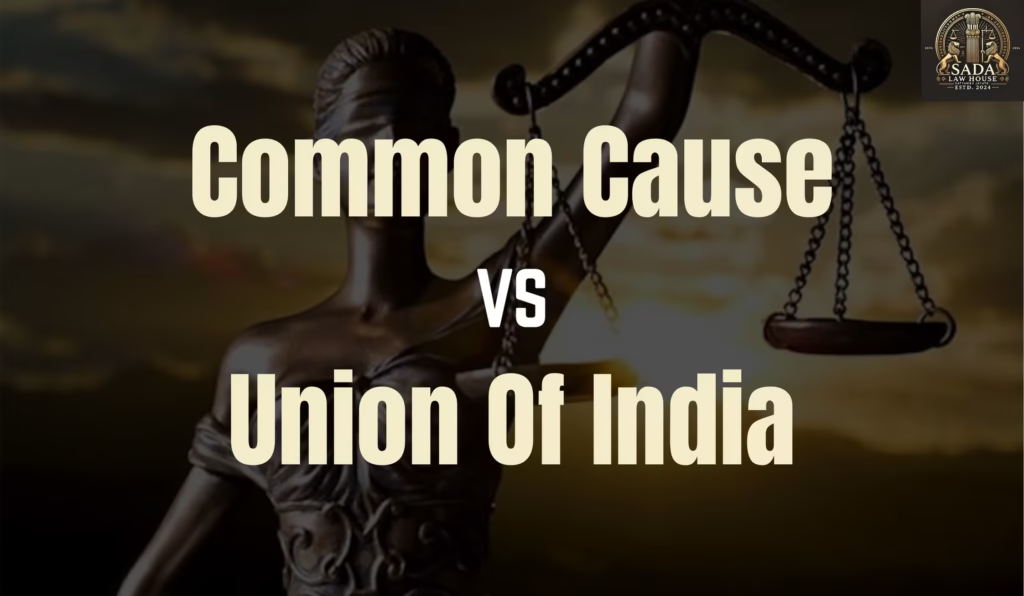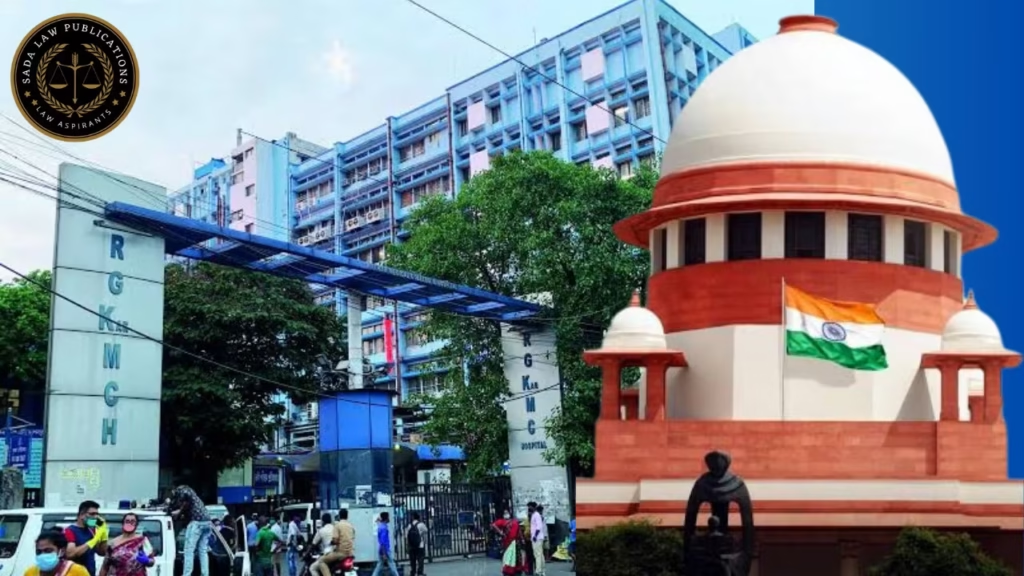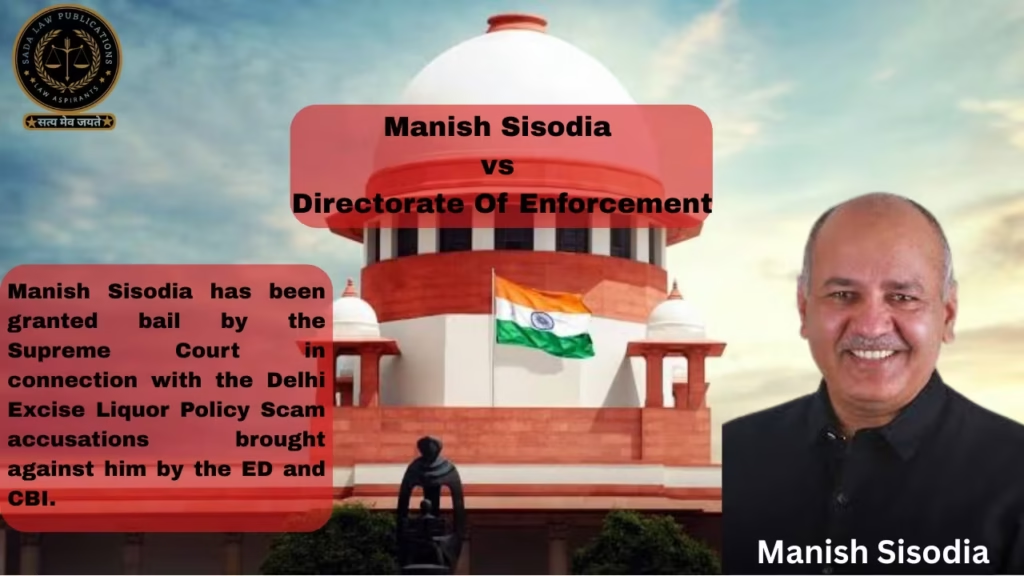Jharkhand High Court: GST Refund of Pre-Deposit Can’t Be Denied Due to Limitation, Cites Violation of Article 265
Trending Today Jharkhand High Court: GST Refund of Pre-Deposit Can’t Be Denied Due to Limitation, Cites Violation of Article 265 Indian Consumer Courts Can Hear Complaints Against WhatsApp, Rules UP Consumer Forum Supreme Court Upholds Senior Citizens’ Right to Reclaim Property Under Section 23 of Maintenance and Welfare Act Supreme Court Dismisses Noida Toll Company’s Appeal Against DND Flyway Toll Judgment: Highlights Public Interest Justice Surya Kant Appointed as NALSA’s Executive Chairman Effective May 14, 2025 Supreme Court Weighs Shift from Five-Year to Four-Year Law Degree Citing NEP 2020 India-Pakistan Agree to Full and Immediate Ceasefire After U.S. Mediation, Confirms Donald Trump Suspected Drone Debris Found in Jaisalmer After Pakistan’s Border Attacks Indian Army Jawan Murali Naik Killed by Pakistan Firing Near LoC in Jammu & Kashmir Supreme Court Strikes Down 2020 Environmental Clearance Exemption for Roads and Pipelines Jharkhand High Court: GST Refund of Pre-Deposit Can’t Be Denied Due to Limitation, Cites Violation of Article 265 NITU KUMARI 11 May 2025 The Jharkhand High Court rules that GST authorities cannot deny a refund of statutory pre-deposit on limitation grounds. Learn how this landmark judgment protects taxpayer rights under Article 265 of the Constitution of India. GST Pre-Deposit Refund Cannot Be Denied on Limitation Grounds, Says Jharkhand High Court Introduction: A Major Win for GST Assessees In a landmark ruling, the Jharkhand High Court has clarified that GST authorities cannot reject refund claims of statutory pre-deposits merely due to the expiry of the limitation period under Section 54(1) of the CGST Act. This judgment reinforces the constitutional protection provided under Article 265 and affirms that such refunds are a statutory right of the assessee. Case Overview: BLA Infrastructure Pvt. Ltd. vs State of Jharkhand Case Title: M/s BLA Infrastructure Pvt. Ltd. vs State of JharkhandDate of Judgment: 18 April 2025Bench: Chief Justice M.S. Ramachandra Rao and Justice Deepak Roshan The petitioner, a registered dealer under the Goods and Services Tax Act, is engaged in the loading and transportation of coal. A Show Cause Notice under Section 74 of the JGST Act, 2017 was issued in January 2021 for a mismatch between GSTR-1 and GSTR-3B filings for September 2019. This resulted in an ex-parte order imposing a liability of ₹16,90,442, including tax, interest, and penalties. To file an appeal, the petitioner deposited 10% of the disputed tax as a statutory pre-deposit under Section 107(6)(b). After winning the appeal, they applied for a refund of the pre-deposit, but the application was rejected as time-barred under Section 54(1). Court’s Observations: Refund Is a Statutory Right The Division Bench emphasized that refund of a pre-deposit is a statutory exercise and cannot be denied using limitation clauses. The Court noted: “There is no dispute that once refund is by way of statutory exercise, the same cannot be retained by the State or Centre by taking aid of a provision which is directory in nature.” The Court highlighted that the use of the word “may” in Section 54 indicates discretion, not a mandatory requirement, and that denying refund based on limitation would be arbitrary and contrary to the Limitation Act, 1963. Rejection Quashed: Refund Must Be Processed The Deficiency Memo dated 06.11.2024, which rejected the refund application, was declared legally unsustainable. The Court ordered the GST Department to process the refund within six weeks, along with any applicable statutory interest. Key Takeaways for Taxpayers 1. Pre-deposit refunds are a statutory right 2. Limitation under Section 54(1) does not apply to such refunds 3. Authorities cannot interpret directory provisions as mandatory 4. Article 265 protects taxpayers from arbitrary retention of funds Conclusion: Upholding Assessee Rights in GST This judgment is a significant precedent for all GST assessees seeking refunds of statutory pre-deposits. It clarifies that such refunds are not subject to the usual GST refund time limits, reinforcing legal clarity and taxpayer protection under Indian tax law. Leave a Reply Cancel Reply Logged in as Sada Law. Edit your profile. Log out? Required fields are marked * Message* Case Laws Jharkhand High Court: GST Refund of Pre-Deposit Can’t Be Denied Due to Limitation, Cites Violation of Article 265 Jharkhand High Court: GST Refund of Pre-Deposit Can’t Be Denied Due to Limitation, Cites Violation of Article 265 Sada Law • May 11, 2025 • Case law • No Comments Indian Consumer Courts Can Hear Complaints Against WhatsApp, Rules UP Consumer Forum Indian Consumer Courts Can Hear Complaints Against WhatsApp, Rules UP Consumer Forum Sada Law • May 11, 2025 • Case law • No Comments Supreme Court Upholds Senior Citizens’ Right to Reclaim Property Under Section 23 of Maintenance and Welfare Act Supreme Court Upholds Senior Citizens’ Right to Reclaim Property Under Section 23 of Maintenance and Welfare Act Sada Law • May 11, 2025 • Case law • No Comments 1 2 3 … 5 Next »

